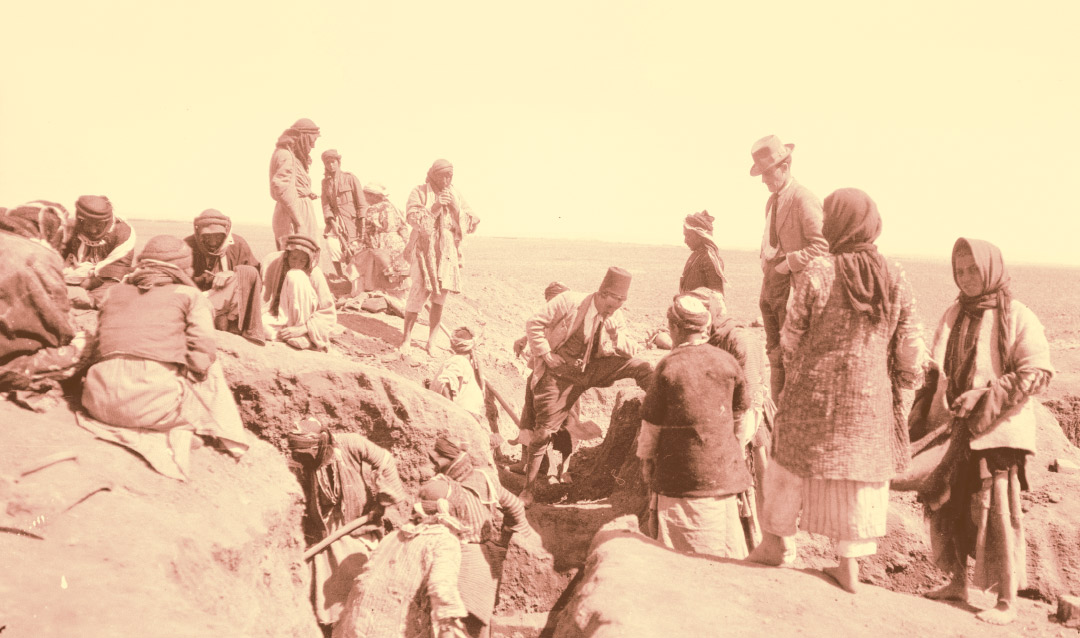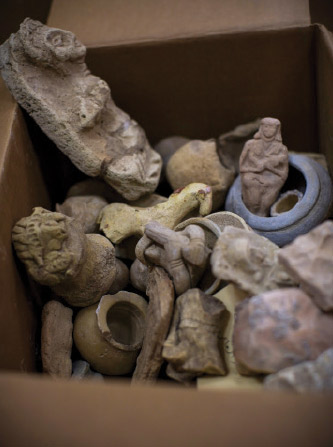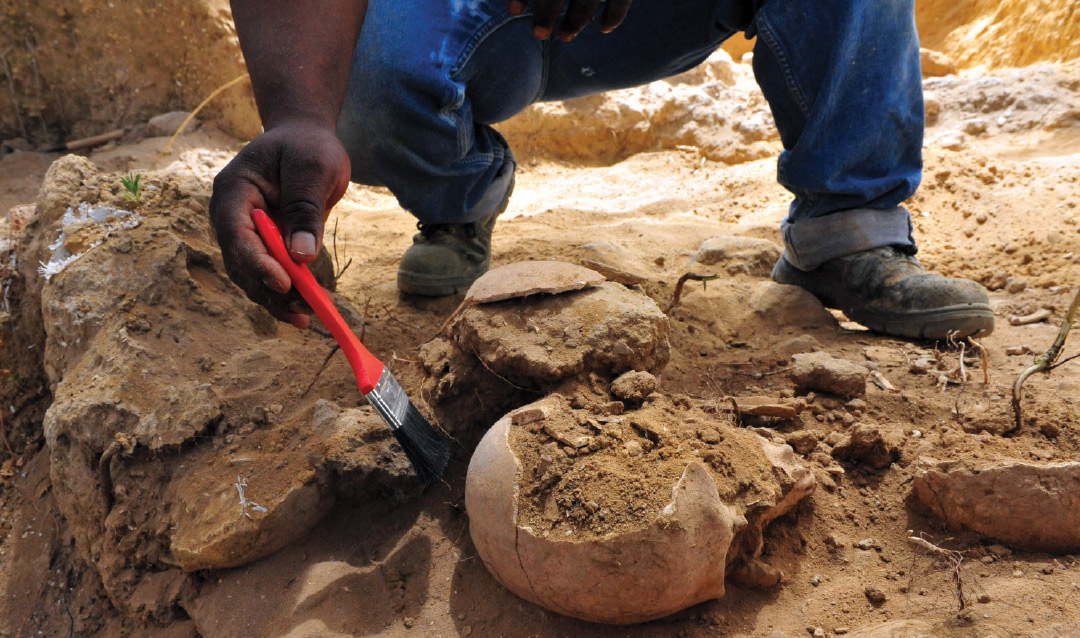Digging Up Artifacts and Experiences
Mickel has spent two to three months each summer in Turkey and Jordan, and between 2011 and 2015 spent a year at both sites, conducting dissertation fieldwork on a Fulbright grant.
“What I find in [Petra and Catalhoyuk] is relevant to a lot of other contexts because archaeology is fairly regional in its practice,” she says.
Mickel participates in excavations during her time on sites, and she considers that participation a critical part of her work.
“I just don’t think it’s a very productive exercise to look at archaeology from the outside and critique it. I think if I’m going to make an argument about how archaeology projects are managed, I need to be part of that structure. I want to own some of this responsibility, too. I don’t know that I’ve done enough to upend the labor management practices that we’ve been engaging in for so long. So I do also dig.”
Beyond digging, Mickel examines records of archaeological excavations for the individuals listed as site workers. She visits their homes and asks questions about the site workers’ experiences on the excavations.
“I found that this system has led to one in which workers are doing this dance all the time in archaeology where they are integral to carrying out an excavation, they work for almost nothing, they are good at what they do, they have decades of experience in addition to generational knowledge that’s been handed down. … Most of these people, for context, their fathers worked in archaeology, their grandfathers worked in archaeology—it’s almost like a family business for them to be there. So they have a ton of knowledge, but if I tell them how much I admire their expertise, they react really negatively to that label of expertise.”
Mickel believes that an improvement of labor practices would benefit not just workers, but archaeology as a whole.
“This isn’t charity work. If we want to have better archaeology, if we want to know more about the past, then we need to find ways to benefit from the knowledge that these people have been hiding for decades and decades and decades from us.”
The Business of Improved Working Conditions
A second phase of Mickel’s research examines two separate companies—one in northern Jordan and another in southern Jordan—that seek to address in different ways the problematic nature of archaeology as an employment sector.
“In a broad sense, archaeology is not doing right by the people working on the ground locally in Jordan,” says Mickel. “And so both [groups] had the idea of forming companies that would be composed of local people who would be responsible for site management [and] cultural heritage protection.”
In southern Jordan, one company focuses on training and certifying locals as experts and ensuring that they are paid and treated fairly on archaeological digs. The other company, located in the northern part of the country, provides micro loans to small businesses related to archaeology and tourism. Although their focus areas are slightly different, both companies emphasize community benefit, the protection of workers and the reclaiming of the archaeological industry in the region—an odd juxtaposition, Mickel says.
“These companies to me are essentially performing the work of unions in archaeology,” she explains. “There are some complicated legal reasons why there aren’t unions among workers in archaeology … and so these companies are essentially performing the work that a union would do in a legal way, which is so incredibly fascinating because in so many ways the idea of unions is opposed to the idea of capitalism. In the United States especially, unions and companies are opposed; they have opposing ethical centers, I would say. And then here in Jordan, companies are being pointed to as the solution to the problems that a union would ordinarily be addressing.”
Mickel plans to follow the progress of these companies for three years, splitting the summer months between the two. She will live in the communities, attend company meetings and work on site with them. She hopes in observing the development of each company she can discover what works—and what doesn’t.
“Over three years, each summer [I will ask]: Where are they? How have they changed archaeology? What’s going on? Have they managed to create this shift that they’re envisioning? And if not, why not? What are the obstacles that they faced? Is this problem bigger than something that can be solved on the ground with a startup?”
Transcending an Ugly Past
Mickel tells a story about the 1840s excavation of a colossal winged lion sculpture in Iraq. The sandy desert terrain made it difficult to move one of the sculptures, and after attempting several strategies to engage the interest and effort of the workers—removing those deemed bad luck, having a woman sit upon the sculpture for good luck, dressing up and naming chief of the group a young boy and then an old man—the archaeologists went so far as to have several unpopular workers lie down in front of the cart.
“[They thought] it would be good luck if they ran someone over with it,” Mickel explains.
The modern discipline of archaeology, says Mickel, is engaged in conversations about how archaeologists might engage local communities around the world. But without meaningful changes to the treatment of site workers, the significance of the story of the winged lion lingers.
“Actual labor practices are pretty recognizable from the early days,” she says. “So until that changes, I really don’t think it’s too dramatic to say that we’re still going to be wearing the legacy of these bloody stories. We’re just not that far away from it.”
This story originally appeared as "The Unknown Experts of Archaeology" in the 2019 Lehigh Research Review.







